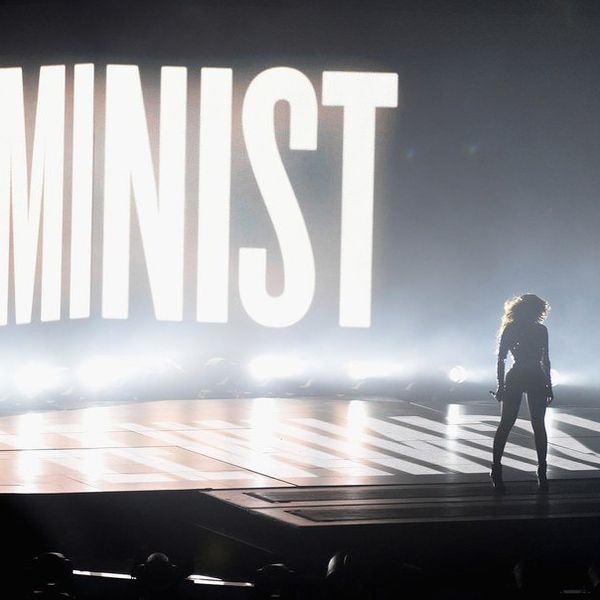As a kid I didn’t like pink and frilly things simply because they screamed to me “This is what girls wear!” There was never a male equivalent to the store Libby Lou and it made me feel uneasy. I dreamed of growing up being a mom more than I imagined marrying someone. Not that marriage is bad in any respect, but that I never fantasized about depending on someone else. Now I know that feminism doesn’t mean hating stereotypical “girly” things, that you can wear heels and big crazy skirts and dress up to impress someone in your life and still be a feminist.
The definition of feminism is the social, political, and economic equality of the sexes. However, the umbrella of feminism covers so many issues that no two feminists look the same.
If you gathered people who claimed they were feminists and asked their opinions on religion, gender, sexuality, and politics you’d get varied answers across the board. There are simply too many subtopics to actively defend them all. So when I say we should all be feminists, I stress the definition of what feminism means to me, and the treatment for women worldwide.
Feminism to me means a woman is never accepted or denied something, or told she should or shouldn’t do anything, because she is a woman.
Chimamanda Ngozi Adichie, author and feminist, said in her TEDxEuston talk, “Some people ask: "Why the word feminist? Why not just say you are a believer in human rights, or something like that?" Because that would be dishonest. Feminism is, of course, part of human rights in general, but to choose to use the vague expression human rights is to deny the specific and particular problem of gender.
“It would be a way of pretending that it was not women who have, for centuries, been excluded. It would be a way of denying that the problem of gender targets women. That the problem was not about being human, but specifically about being a female human. For centuries, the world divided human beings into two groups and then proceeded to exclude and oppress one group. It is only fair that the solution to the problem acknowledge that.”
Some people reject the idea of feminism by bringing up evolutionary biology and apes, how female apes bow to male apes – as if we pay close attention to apes for how we act as humans. We are not apes. We do not live in trees and eat grubs.
Some people say that your feminist beliefs should come from you as a human being, not so specific as coming from you as a woman. This type of approach is a way of demeaning a person's experiences. Of course I am a human being, but there are particular things that happen to me in the world because I am a woman.
Others will say a woman is subordinate to men because it's ingrained in certain cultures, or it’s due to history. The thing is, culture is constantly changing. As a woman, I can legally marry another woman in my home state of Illinois, but people couldn’t do that 20 years ago. Over 150 years ago, white people in America could buy people. It was a culture. But culture does not make people. People make culture. If the equality of women is not in our culture, then we must actively make it our culture.
We need to acknowledge that there is a problem with gender as it is today and we must do better.
Everyone should be a feminist because of how the lives of all would improve. Women everywhere would feel safer, more capable of accomplishing a world full of goals, and worthy of respect. Think of the equal pay for equal work, the violence against girls and boys would plummet, the quality education for so many more kids, the end of child marriage, the end of catcalling! That’s what I want.
Change begins with conversation. Challenging those around you to ask more questions about the way people are treated. Feminism is a movement that isn’t unilateral and can’t be. So you don’t have to call yourself a feminist, but it all comes down to treating people with equal respect allowing us all an opportunity to live our best lives. No one should have the right to deny someone else of theirs.





















